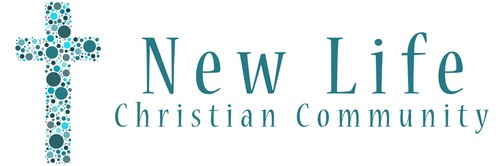March 30, 2025 Pondering
Who is a God like you, pardoning iniquity and passing over transgression for the remnant of his inheritance? He does not retain his anger forever, because he delights in steadfast love. Micah 7:18
Micah 7:18 appeared in the course of my daily through-the-Bible reading. I was familiar with it from previous trips through the Bible and because we used to sing a song based on it:
Who is a pard’ning God like Thee?
Or who has grace so rich and free?
Those are great questions and the answer to both is “God alone, through His Son.”
What jumped out at me in my reading was the word “pardoning.” I looked it up.
A pardon is an official act of forgiveness granted by a government authority… that releases an individual from the legal consequences of a crime, including punishment and any future prosecution for that specific offense.
If we edit the definition to say the one who grants a pardon is “God,” and change “crime” and “offence” to “sin,” we have a good, biblical definition of “pardon.” It is a fundamental biblical truth.
Upon reading “pardoning,” I wondered why the word is not “atoning.” Micah was an Old Testament prophet and would have been familiar with the rituals of the Law of Moses. Sin was to be dealt with using a different word: “atoning.” It makes sense that Micah might have written:
Who is a God like you, atoning for iniquity…?
A person atones for a “misdeed” or “sin” by making amends or reparation. In the Old Testament system, the atonement was accomplished by providing an appropriate animal sacrifice. The cost of the animal was the person’s “amends or reparation,” but it was the animal that offered the true payment. The wages of sin is death and the animal died in the place of the sinning person who deserved to die for his sin. The animal was physically perfect, but it was actually God who provided for the person’s sin by accepting the substitute.
We understand that the Old Testament system was a foreshadow of the true atonement that would be the payment for all the sins of all people. The sacrifice for the atonement for all people would have to be something much more than an animal a person happened to have in the pen behind his house. The weight of so many sins of such profound seriousness would require a very special animal. But what animal could qualify? Perfection of a different and far greater order would be necessary.
All of the lambs, bulls, goats, and birds offered at the altar in the Tabernacle or Temple had to be physically perfect. But, being animals, their physical perfection was only a symbol of the moral perfection that they did not have but was actually needed. Again, God would provide. His Son would take the place of the sinners. The Son was perfect in every way. He could be the sacrifice that would be the payment, the atonement, for all sin.
We can understand that to sacrifice an animal that had grown up in one’s pen was an emotional experience. Those animals were part of the family. To see them sacrificed for one’s sin would have been painful.
From our perspective, the sacrifice of God’s perfect Son was an emotionally painful event. Yet the plan for our atonement was formed by God through His wisdom and grace. It was something that must be done. And He executed His plan willingly.
Hebrews 7:26 says, “For it was indeed fitting that we should have such a high priest, holy, innocent, unstained, separated from sinners, and exalted above the heavens.” Jesus was that high priest. Jesus was also the perfect sacrifice in the place of sinners. He paid the atoning price for the sins of the world.
You might be thinking, “I thought this pondering was going to be about pardoning, but it is about atonement.” What’s going on? Pardon is the final result. Atonement is what brings the sinner to the place where he experiences pardon, or forgiveness.
As we approach the time of the year when we recall the death of Jesus on the cross for our sins, let us remember that Jesus was the One who died in our place—for the sins we committed. He paid the “reparation.” He purchased our pardon so we are free from the consequences of our sins.
Do not simply go forward with mere knowledge of what Jesus did for us. Go forward with the faith that appropriates and experiences His sacrifice for your sins. And rejoice in the freedom and joy that faith in the sacrifice of Jesus provides.
Jay Swisher
Recent
Archive
2026
January
2025
September
October
November
Categories
no categories

No Comments